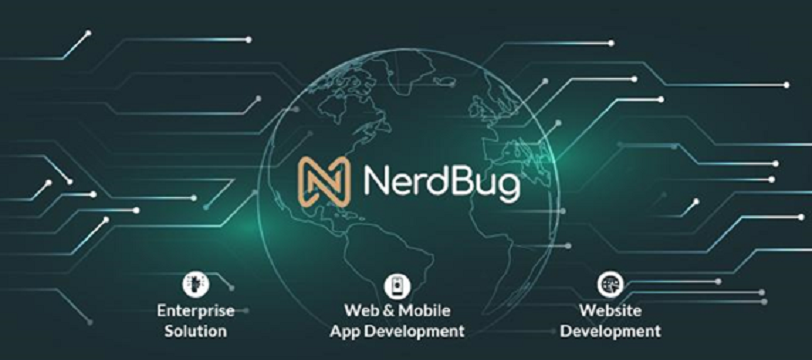Technology
The Latest Trends and Best Practices in Cybersecurity: Ensuring Secure Software Development

In today’s digital landscape, cybersecurity remains a top priority for organizations worldwide. As cyber threats evolve and become more sophisticated, staying updated with the latest trends and adhering to best practices is crucial. This article explores the current trends in cybersecurity and outlines the software development requirements necessary for organizations to align with the trends and industry standards.
Latest Trends in Cybersecurity
- Zero Trust Architecture: Traditional perimeter-based security models are becoming obsolete. Zero Trust Architecture (ZTA) is a security model that assumes no user or device, whether inside or outside the network, can be trusted by default. Verification is required from everyone attempting to access resources on the network. This model helps prevent data breaches by implementing strict identity verification processes.
- Artificial Intelligence and Machine Learning: AI and ML are being leveraged to enhance threat detection and response. These technologies can analyze vast amounts of data to identify patterns and anomalies that may indicate a security threat. AI-driven cybersecurity solutions can provide real-time threat intelligence and automate responses to mitigate risks quickly.
- Extended Detection and Response (XDR): XDR integrates multiple security products into a cohesive security operation system. It provides a holistic view of threats across the entire IT environment, including endpoints, networks, and servers. XDR improves threat detection and response capabilities by correlating data from various sources and providing actionable insights.
- Cloud Security: As more organizations migrate to the cloud, securing cloud environments has become a top priority. Cloud security trends include the use of cloud-native security tools, encryption of data at rest and in transit, and robust identity and access management (IAM) solutions to protect cloud resources.
- Supply Chain Security: Cyberattacks targeting supply chains have increased, highlighting the need for robust supply chain security measures. Organizations are now focusing on assessing and managing risks associated with third-party vendors and ensuring that their security practices are up to par.
- Privacy-Enhancing Technologies (PETs): PETs are designed to protect individual privacy by minimizing the amount of personal data processed. Techniques such as differential privacy, homomorphic encryption, and federated learning are gaining traction to ensure data privacy while still allowing valuable data analysis.
To take advantage of these trends, organisations should prioritise innovation abiding by the following best practices:
Best Practices in Cybersecurity
- Implement Strong Access Controls: Utilization of multi-factor authentication (MFA) and role-based access control (RBAC) limits access to sensitive information and systems. Ensure that access permissions are regularly reviewed and updated.
- Regularly Update and Patch Systems: Keeping software and systems up to date is crucial for protecting against known vulnerabilities. Implement automated patch management processes to ensure timely updates.
- Conduct Regular Security Audits and Assessments: Perform regular security audits, vulnerability assessments, and penetration testing to identify and remediate potential security weaknesses.
- Educate and Train Employees: Human error is a significant factor in many security breaches. Regular cybersecurity training and awareness programs can help employees recognize and respond to potential threats effectively.
- Develop an Incident Response Plan: Prepare for potential security incidents by developing and regularly updating an incident response plan. Conduct drills to ensure that the response team is ready to act swiftly in the event of a breach.
- Encrypt Sensitive Data: Use encryption to protect sensitive data both at rest and in transit. This ensures that even if data is intercepted, it remains unreadable to unauthorized parties.
In addition to the recommendations above, tech-enabled organisations should consider the following requirements when developing software for enhanced cybersecurity.
Software Development Requirements for Enhanced Cybersecurity
- Secure Coding Practices: Adhere to secure coding standards and guidelines such as OWASP’s Top Ten. Conduct code reviews and static code analysis to identify and fix security vulnerabilities during the development process.
- Integrate Security into the DevOps Process (DevSecOps): Incorporate security practices into the DevOps workflow to ensure that security is considered at every stage of the software development lifecycle. Use automated security testing tools to identify and remediate vulnerabilities early.
- Use Secure Development Frameworks and Libraries: Leverage well-established and secure development frameworks and libraries. Ensure that these components are regularly updated to address any newly discovered vulnerabilities.
- Implement Continuous Monitoring and Logging: Enable continuous monitoring and logging of applications and infrastructure to detect and respond to security incidents in real-time. Use security information and event management (SIEM) systems to aggregate and analyze log data.
- Conduct Threat Modeling: Perform threat modeling to identify potential security threats and vulnerabilities in the design phase. This proactive approach helps in building security measures into the architecture from the outset.
- Automate Security Testing: Use automated security testing tools such as static analysis, dynamic analysis, and interactive application security testing (IAST) to identify vulnerabilities throughout the development lifecycle. Automated tests should be integrated into the CI/CD pipeline to ensure continuous security validation.
Conclusion
Staying ahead in the ever-evolving field of cybersecurity requires organizations to be proactive and adopt the latest trends and best practices. By implementing robust security measures and fostering a culture of security awareness, organizations can significantly reduce their risk of cyber threats.
Software Development Companies like Nerdbug integrate security into product development lifecycles, aligning with global best practices. Embracing technologies like AI and cloud security, alongside following best practices such as zero trust and continuous monitoring, will help organizations safeguard their digital assets and maintain trust with their customers and stakeholders.
Technology
Telecom Operators to Issue 14-Day Notice Before SIM Disconnection

By Adedapo Adesanya
Telecommunications operators in Nigeria will now be required to give subscribers a minimum of 14 days’ notice before deactivating their SIM cards over inactivity or post-paid churn, following a fresh proposal by the Nigerian Communications Commission (NCC).
The proposal is contained in a consultation paper, signed by the Executive Vice Chairman and Chief Executive Officer of the NCC, Mr Aminu Maida, and titled Stakeholders Consultation Process for the Telecoms Identity Risks Management Platform, dated February 26, 2026, and published on the Commission’s website.
Under the proposed amendments to the Quality-of-Service (QoS) Business Rules, the Commission said operators must notify affected subscribers ahead of any planned churn.
“Prior to churning of a post-paid line, the Operator shall send a notification to the affected subscriber through an alternative line or an email on the pending churning of his line,” the document stated.
It added that “this notification shall be sent at least 14 days before the final date for the churn of the number.”
A similar provision was proposed for prepaid subscribers. According to the Commission, operators must equally notify prepaid customers via an alternative line or email at least 14 days before the final churn date.
Currently, under Section 2.3.1 of the QoS Business Rules, a subscriber’s line may be deactivated if it has not been used for six months for a revenue-generating event. If the inactivity persists for another six months, the subscriber risks losing the number entirely, except in cases of proven network-related faults.
The new proposal is part of a broader regulatory review tied to the rollout of the Telecoms Identity Risk Management System (TIRMS), a cross-sector platform designed to curb fraud linked to recycled, swapped and barred mobile numbers.
The NCC explained in the background section of the paper that TIRMS is a secure, regulatory-backed platform that helps prevent fraud stemming from churned, swapped, barred Mobile Station International Subscriber Directory Numbers in Nigeria.
It said this platform will provide a uniform approach for all sectors in relation to the integrity and utilisation of registered MSISDNs on the Nigerian Communications network.
In addition to the 14-day notice requirement, the Commission also proposed that operators must submit details of all churned numbers to TIRMS within seven days of completing the churn process, strengthening oversight and accountability in the system.
The consultation process, which the Commission said is in line with Section 58 of the Nigerian Communications Act 2003, will remain open for 21 days from the date of publication. Stakeholders are expected to submit their comments on or before March 20, 2026.
Technology
Silverbird Honours Interswitch’s Elegbe for Nigeria’s Digital Payments Revolution

By Modupe Gbadeyanka
The founder of Interswitch, Mr Mitchell Elegbe, has been honoured for pioneering Nigeria’s digital payments revolution.
At a ceremony in Lagos on Sunday, March 1, 2026, he was bestowed with the 2025 Silverbird Special Achievement Award for shaping Africa’s financial ecosystem.
The Silverbird Special Achievement Award recognises individuals whose innovation, vision, and sustained impact have left an indelible mark on society.
Mr Elegbe described the award as both humbling and symbolic of a broader journey, saying, “This honour represents far more than a personal milestone. It reflects the courage of a team that believed, long before it was fashionable, that Nigeria and Africa could build world-class financial infrastructure.”
“When we started Interswitch, we were driven by a simple but powerful idea that technology could democratise access, unlock opportunity, and enable commerce at scale.
“This recognition by Silverbird strengthens our resolve to continue building systems that empower businesses, support governments, and expand inclusion across the continent,” he said when he received the accolade at the Silverbird Man of the Year Awards ceremony attended by several other dignitaries, whose leadership and contributions continue to shape national development and industry transformation.
In 2002, Mr Elegbe established Interswitch after he was inspired by a bold conviction that technology could fundamentally redefine how value moves within and across economies.
Under his leadership, the company has evolved into one of Africa’s foremost integrated payments and digital commerce companies, powering financial transactions for governments, banks, businesses, and millions of consumers.
Today, much of Nigeria’s electronic payments ecosystem traces its foundational architecture to the systems and rails established under his leadership.
“Mitchell’s journey is inseparable from Nigeria’s digital payments evolution. His foresight and resilience helped establish foundational infrastructure at a time when the ecosystem was still nascent.
“This recognition affirms not only his personal legacy, but the broader impact of Interswitch in enabling commerce and strengthening financial systems across Africa,” the Executive Vice President and Group Marketing and Communications for Interswitch, Ms Cherry Eromosele, commented.
Technology
SERAP Seeks FCCPC Probe into Big Tech’s Impact on Nigeria’s Digital Economy

By Adedapo Adesanya
The Socio-Economic Rights and Accountability Project (SERAP) has called on the Federal Competition and Consumer Protection Commission (FCCPC) to urgently investigate major global technology companies over alleged abuses affecting Nigeria’s digital economy, media freedom, privacy rights and democratic integrity.
In a complaint addressed to the chief executive of FCCPC, Mr Tunji Bello, the group accused Google, Meta (Facebook), Apple, Microsoft (Bing), X, TikTok, Amazon and YouTube of deploying opaque algorithms and leveraging market dominance in ways that allegedly undermine Nigerian media organisations, businesses, and citizens’ rights.
The complaint, signed by SERAP Deputy Director, Mr Kolawole Oluwadare, urged the commission to take measures necessary to urgently prevent further unfair market practices, algorithmic influence, consumer harm and abuses of media freedom, freedom of expression, privacy, and access to information.”
SERAP also asked the FCCPC to convene a public hearing to investigate allegations of algorithmic discrimination, data exploitation, revenue diversion, and anti-competitive conduct involving the tech giants.
According to the organisation, dominant digital platforms now act as private gatekeepers of Nigeria’s information and business ecosystem, wielding enormous influence over public discourse and market competition without sufficient transparency or regulatory oversight.
“Millions of Nigerians rely on these platforms for news, information and business opportunities,” SERAP stated, warning that opaque algorithms and offshore revenue extraction models pose both economic and human rights concerns.
The group argued that the alleged practices threaten media plurality, consumer protection, privacy rights, and the integrity of Nigeria’s forthcoming elections.
SERAP pointed to actions taken by the South African Competition Commission, which investigated Google over alleged bias against local media content, adding that the South African probe reportedly resulted in measures including algorithmic transparency requirements, compliance monitoring and financial remedies.
SERAP urged the FCCPC to take similar steps to safeguard Nigerian media and businesses.
The organisation maintained that if established, the allegations could amount to violations of Sections 17 and 18 of the Federal Competition and Consumer Protection Act (FCCPA), which prohibit abuse of market dominance and anti-competitive conduct.
SERAP stressed that the FCCPC has statutory authority to investigate and sanction conduct that substantially prevents, restricts or distorts competition in Nigeria.
It also warned that failure by the Commission to act promptly could prompt the organisation to pursue legal action to compel regulatory intervention.
Citing concerns reportedly raised by the Nigerian Press Organisation (NPO), SERAP said big tech companies have fundamentally altered Nigeria’s information environment, creating what it described as a structural imbalance of power that threatens the sustainability of professional journalism.
Among the allegations listed are: Algorithms controlled outside Nigeria determining content visibility, monetisation of Nigerian news content without proportionate reinvestment, offshore extraction of advertising revenues, limited discoverability of Nigerian websites and platforms, and lack of transparency in ranking and recommendation systems.
SERAP argued that declining revenues in the Nigerian media industry have led to shrinking newsrooms, closure of bureaus, and the emergence of news deserts, weakening journalism’s constitutional role in democratic accountability.
The organisation further warned that algorithmic opacity and data-driven micro-targeting could influence voter exposure to information ahead of Nigeria’s forthcoming elections, raising concerns about electoral fairness and transparency.
-

 Feature/OPED6 years ago
Feature/OPED6 years agoDavos was Different this year
-
Travel/Tourism10 years ago
Lagos Seals Western Lodge Hotel In Ikorodu
-

 Showbiz3 years ago
Showbiz3 years agoEstranged Lover Releases Videos of Empress Njamah Bathing
-

 Banking8 years ago
Banking8 years agoSort Codes of GTBank Branches in Nigeria
-

 Economy3 years ago
Economy3 years agoSubsidy Removal: CNG at N130 Per Litre Cheaper Than Petrol—IPMAN
-

 Banking3 years ago
Banking3 years agoSort Codes of UBA Branches in Nigeria
-

 Banking3 years ago
Banking3 years agoFirst Bank Announces Planned Downtime
-

 Sports3 years ago
Sports3 years agoHighest Paid Nigerian Footballer – How Much Do Nigerian Footballers Earn



















